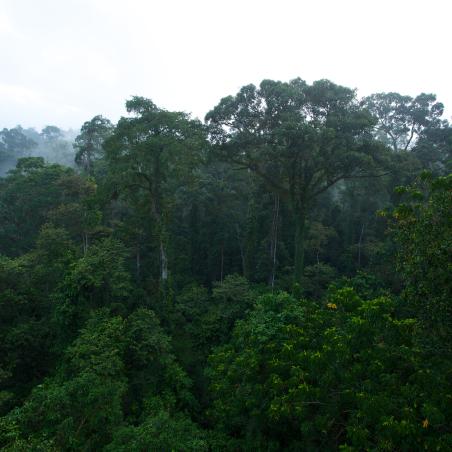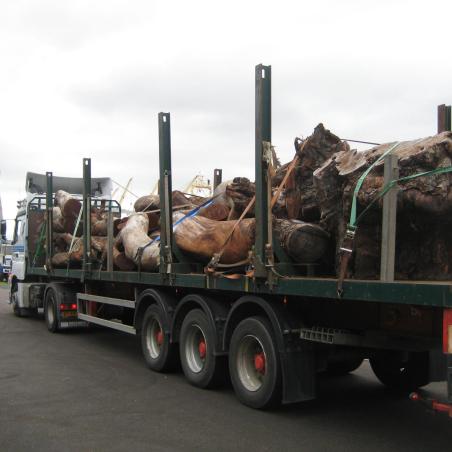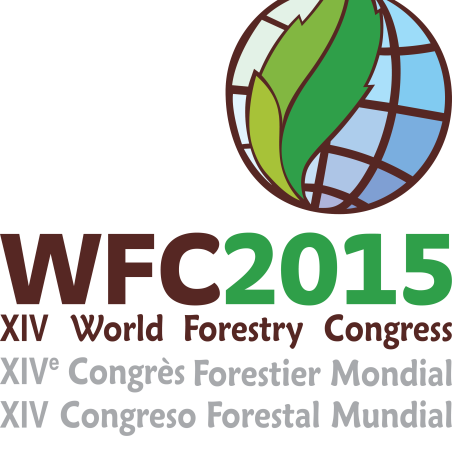News & Blogs
12/05/2016
Japan’s New Legal Timber Law
Type:
Blog Post
In May 2016, Japan adopted a new piece of legislation, called the “Law Concerning the Promotion of Distribution and Use of Legally-Harvested Timber, etc.” This law takes a different approach from other demand-side regulations for illegal timber imports, such as the U.S. Lacey Act, the EU Timber Regulation and Australian Illegal Logging Prohibition Act, in the sense that it is designed to promote the trade of legal timber, rather than attempting to eliminate illegal timber on the market.
12/02/2016
With Forest Legality Initiative, WRI enters a new phase in the fight to end illegal logging
Type:
Blog Post
Since 2010, WRI’s Forest Legality Alliance (FLA) has been at the forefront of efforts to combat illegal logging and associated trade. Together with co-founders the U.S. Agency for International Development (USAID) and the Environmental Investigation Agency (EIA), as well as over 100 partner organizations from governments, civil society, and the private sector, FLA has been a prime convener and technical resource on this crucial issue.
05/26/2016
5 Technologies Help Thwart Illegal Logging by Tracing Wood’s Origin
Type:
Blog Post
The illegal timber trade creates problems for everyone. Governments lose valuable revenue and natural resources. So governments and businesses are starting to do more to improve timber traceability, including adopting new and existing technologies that can help track timber, manage information, and eventually, help combat illegal logging.
01/14/2016
Peru’s Illegal “Ghost Trees”: What U.S. Buyers Need to Know
Type:
Blog Post
Illegal logging is an enormous problem in Peru, as shown in recent studies and reports highlighting the phenomenon’s impact on the country’s forests, including an Al Jazeera documentary exploring the links between illegal logging and corruption. A recent government audit found evidence of timber laundering, where exporters make illegally logged wood appear to be legitimately harvested.
11/09/2015
Perimeter Defense: 4 Technologies for Detecting and Preventing Illegal Logging
Type:
Blog Post
Forest defenders—from indigenous groups to government authorities—continue to struggle in stopping illegal logging. Faced with scant resources, rampant corruption and vast tracts of difficult terrain to monitor, being an effective forest manager is often an impossible task.
10/14/2015
$13 Million Fine For Lumber Liquidators Shows U.S. Lacey Act‘s Clout
Type:
Blog Post
On October 7, Lumber Liquidators agreed to plead guilty to several violations of the Lacey Act, among other charges. The largest hardwood flooring retailer in the United States will have to pay a combined $13.2 million for importing illegally harvested timber from areas including forests in far eastern Russia and other compliance issues.
09/08/2015
4 Cutting-Edge Technologies to Catch Illegal Loggers
Type:
Blog Post
Illegal logging and trade in illegal wood is often hard to detect. Illicit loggers and traders will cut legally protected trees at night or in remote areas, disguise or mislabel wood, falsify documents, or work with corrupt law enforcement officers and smugglers in timber markets. Despite recent advances in laws to crack down on illegally sourced wood, for law enforcement agencies with limited resources and companies with complex, global supply chains, identifying illicit activity can be like trying to catch a shadow.
09/02/2015
South Africa Hosts World Forestry Congress: 4 Big Opportunities for Progress
Type:
Blog Post
More than 1,700 leaders from governments, civil society, business and academia will gather next week in Durban, South Africa for the 14th World Forestry Congress (WFC). Hosted by the UN’s Food and Agriculture Organization (FAO) just once every six years, the Congress is considered the most prominent gathering for discussions about challenges and opportunities facing the world’s forests.
08/21/2015
Northwest Lumber Mill First to Be Indicted on US Domestic Lacey Act Charges
Type:
Blog Post
A wood buyer from Washington State and his lumber mill, J&L Tonewoods, were indicted last week on charges of purchasing illegally harvested big leaf maples from the Gifford Pinchot National Forest in violation of the Lacey Act. The act bans illegal wildlife and timber trafficking, and the seven counts of the indictment are the first alleging violations within the United States. J&L Tonewoods processes and supplies big leaf maple for the custom musical instrument industry
08/18/2015
Beyond Cecil the Lion: How the Lacey Act Protects Wildlife and Plants around the World
Type:
Blog Post
The killing of Zimbabwe’s iconic Cecil the lion has sparked media attention and outrage around the world. Zimbabwean officials and the public are calling for the extradition of Walter Palmer, the U.S. game hunter who reportedly paid $50,000 to guides who lured the animal out of its sanctuary and onto private land, where the lion was killed and its skin and head were removed.









